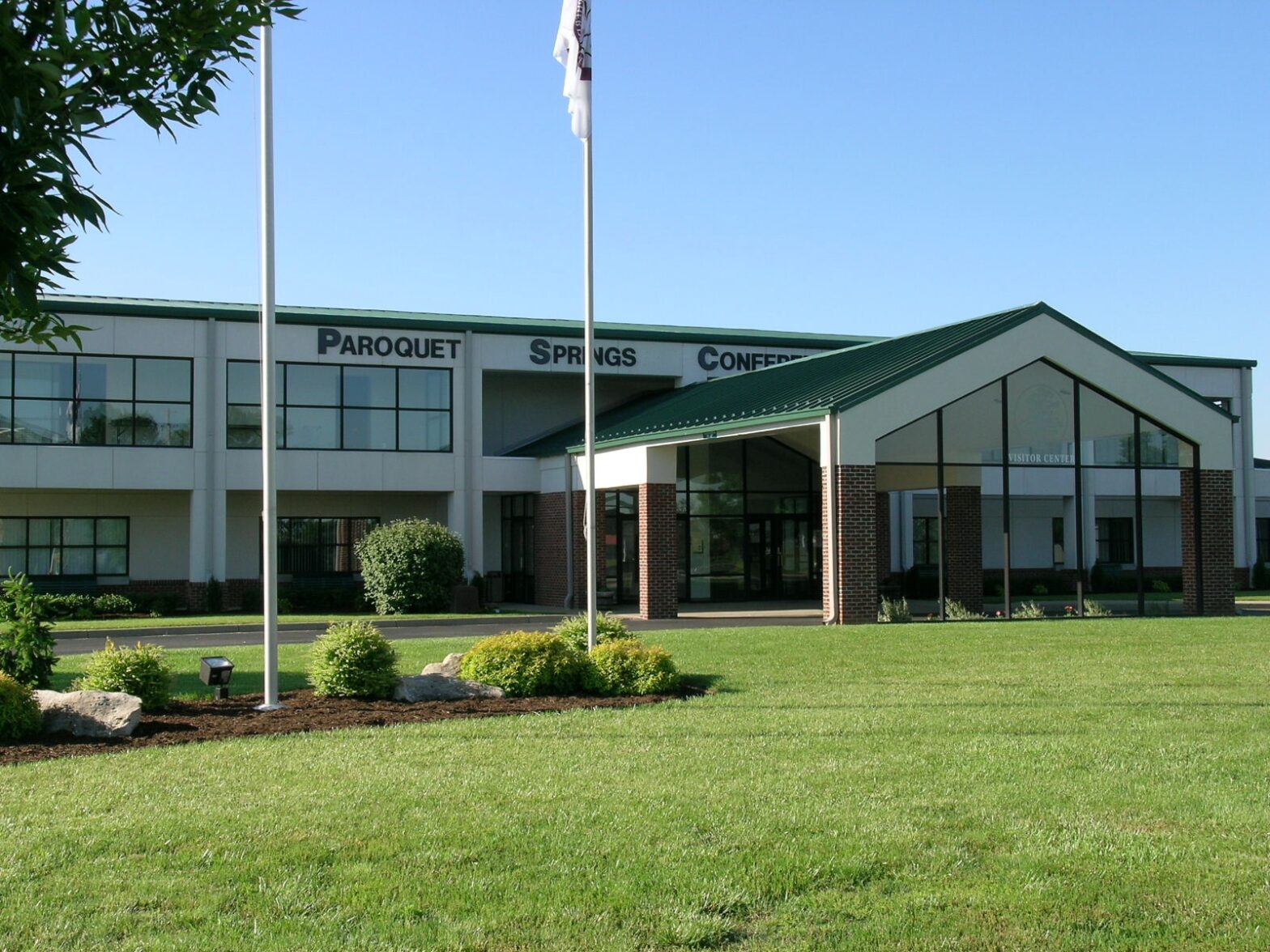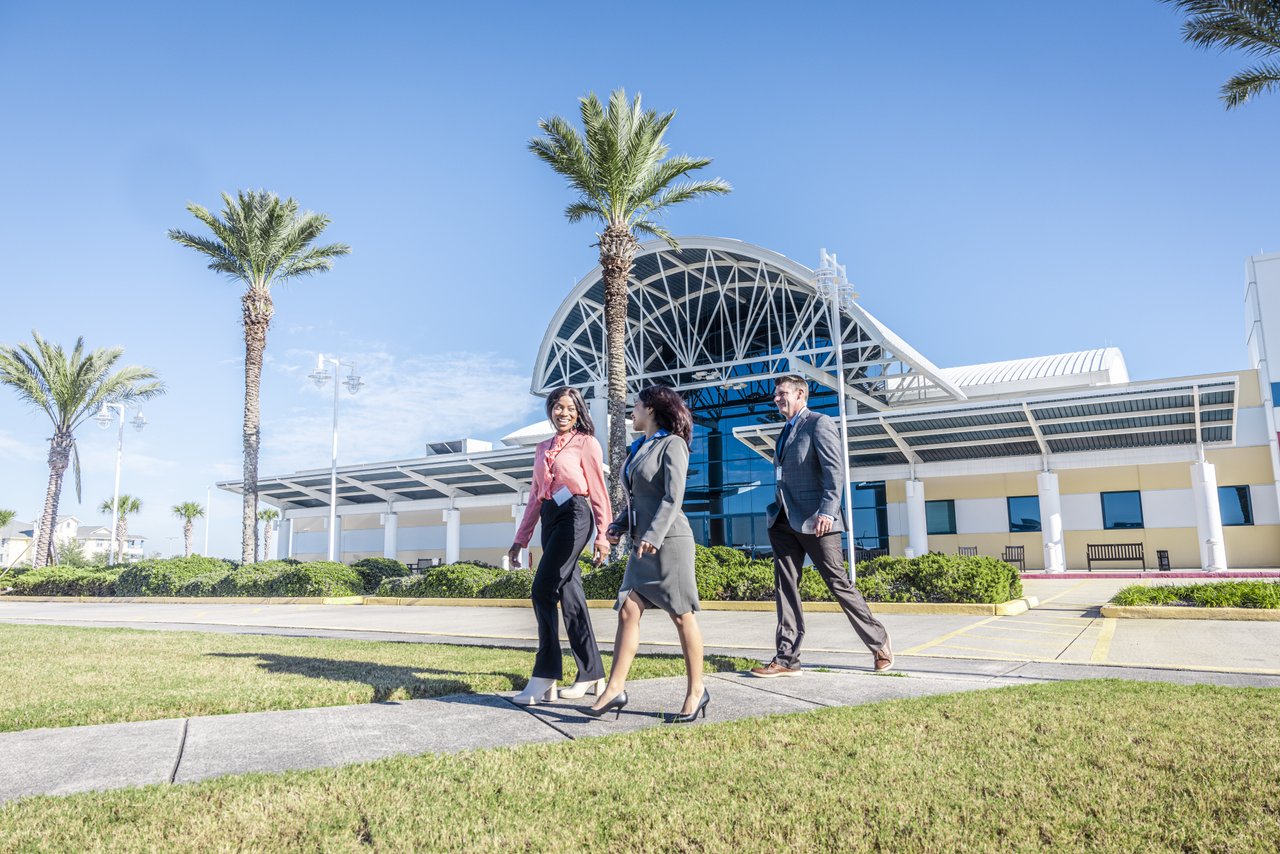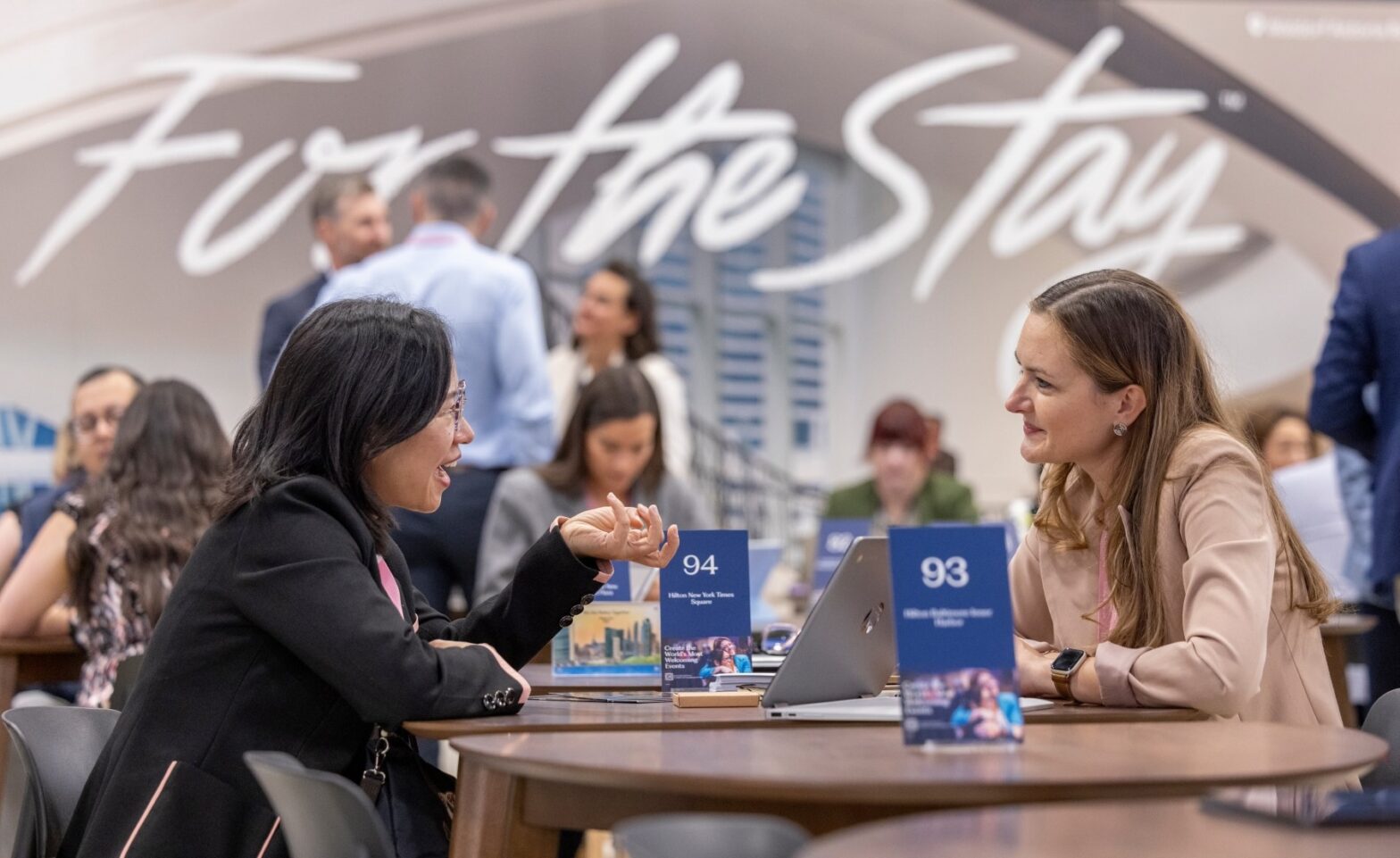Destinations roll out the welcome mat with DEI initiatives

According to “The State of the Meetings & Conventions Industry 2024” survey, conducted by Future Partners, Miles Partnership, and Digital Edge, 49 percent of planners reconsidered a destination in 2024 due to “controversial issues,” while 56 percent anticipate political influence on destination selection to grow in 2025. Those issues include race and gender equity, general political reputation, and social unrest. More commonly, such issues are referred to as DEI—diversity, equality, and inclusion—and are a driving factor in meetings and events programming and site selection.
In Baltimore, a city steeped in history, culture, and hospitality, tourism officials at Visit Baltimore, the official destination marketing organization for the city, updated its “Warm Welcome” program late last year to encourage industry partners and businesses to make the city one of the most welcoming destinations in the country, according to Visit Baltimore CEO Al Hutchinson.
As part of the “Warm Welcome” program, Baltimore businesses pledge to use supportive, affirming language; inspire proactive allyship; encourage productive dialogue about race and bias; and foster active listening and learning, including formal DEI training for staff and/or stakeholders. “Baltimore is home to countless businesses that embody these qualities every day, and, to date, more than 100 local organizations have taken the pledge,” Hutchinson says.
Baltimore businesses that take the “Warm Welcome” pledge gain access to a toolkit, which includes training modules outlining the importance of social inclusion and tips for creating a welcoming experience for all travelers—regardless of race, gender, ethnicity, preference, age, or ability.
“We strive to show Baltimore is a welcoming destination where anyone can find connection and a sense of community,” Hutchinson says. “Our marketing campaigns reflect the city’s composition, highlight its rich history, and promote social inclusion for locals and visitors alike.”
Approximately 1,000 miles south, Fort Lauderdale, Fla., welcomes all visitors with its “Everyone Under the Sun” campaign.
Fort Lauderdale offers a spectacular meeting destination with 24 miles of golden beaches and plenty of restaurants, attractions, and shopping.
“At Visit Lauderdale, inclusivity is at the core of our mission,” says Stacy Ritter, president and CEO of Visit Lauderdale. “We actively work with local businesses, hotels, and attractions to foster a welcoming environment for all visitors.”
The “Everyone Under the Sun” campaign highlights Greater Fort Lauderdale as a destination that embraces diversity, ensuring travelers from all backgrounds feel at home.
“We provide resources, training, and educational workshops for hospitality partners to help them create inclusive experiences, whether through accessibility improvements, cultural competency, or ensuring LGBTQ+ travelers feel safe and celebrated,” Ritter says. “Additionally, we collaborate with organizations that advocate for underrepresented communities to ensure their voices are reflected in our tourism initiatives.”
Zephia Bryant, founder and CEO of Bryant Educational Leadership Group (BELG), looks for destinations with an emphasis on diversity. “It is important for our delegates to feel seen, celebrated, and valued,” Bryant says. “We also seek locations with broad diversity in terms of demographics and broadness in cultural offerings. We consider the
comfort and safety of our delegates in our decision-making.”
Because BELG events are culturally centered by nature, Bryant will not consider locations that are not inclusive or do not value diversity and inclusion as an organizational pillar, she says.

In sourcing BELG programs, Bryant says it’s important to share BELG’s mission and vision with potential destinations.
“Destinations that have been able to understand the vision and mission and partner with us in adding value have a definite advantage,” Bryant says. “Destinations that have won us over have had a deep understanding and knowledge of our clients’ needs beyond knowing just a few buzzwords.”
BELG pays close attention to the aesthetics, culinary offerings, diversity of the staff, and leadership. “These are all indicators that there is knowledge, awareness, and value for diverse clients that might walk through their door,” Bryant says.
If the criteria are met, BELG then looks at other event criteria, such as budget, space allocation, accessibility, walkability, and innovation.
The National Hispanic Corporate Council (NHCC) works with diverse audiences, including Latino and non-Latino corporate leaders, so it is important the destinations they choose for events offer a multicultural and an overall welcoming experience, says Kimberlyt Dayana, manager of operations and engagements for NHCC.
“We explore destinations that offer opportunities to highlight regional inclusive culture, communities, and commerce,” Dayana says. “We also seek destinations with major corporate engagements or headquarters.”
According to the U.S. Census, the South is one of the fastest-growing regions for Hispanic/Latino communities. In addition, it is home to many Fortune 1000 corporations and other major employers, which Dayana says is the NHCC’s primary audience.
NHCC’s annual meetings typically range from 150 to 250 corporate leaders in management and leadership positions. NHCC’s last annual meeting was held at Marriott International’s headquarters in Bethesda, Md., with Atlanta and Washington, D.C., also previously serving as the host destinations for NHCC’s annual meeting. NHCC’s regional forums draw 75 to 100 participants, Dayana adds, at such locations as Houston and Raleigh, N.C.
Accommodating facilities
Like most meeting planners, the NHCC seeks destinations offering unique experiences and engagements, necessary support from convention and visitors bureaus (CVB), upscale hotel properties, airlift reach, and proximity to/from the airport, in addition to area attractions, restaurants, and other activities specific to the programs, agendas, and budgets.
NHCC has held meetings, events, roundtables, and other convenings in various Southern destinations, including northwest Arkansas, Atlanta, Houston, Miami, Orlando, Fla., and Charlotte and Raleigh, N.C.
“All of these selected destinations provided the necessary requirements, support, and resources to attract and execute our programming,” Dayana says. “We look forward to exploring additional cities that we can collaborate in.”
Greater Fort Lauderdale is a premier destination for large-scale events, and accessibility is a top priority, Ritter says.
The Broward County Convention Center (BCCC) has undergone a major expansion
to accommodate larger conferences and events, incorporating state-of-the-art accessible facilities.
Last year, BCCC was the first convention center in North America to adopt the Hidden Disabilities Sunflower Program (HDSP), a tool for people with non-visible disabilities to voluntarily share that they might need extra assistance while traveling.
Many Fort Lauderdale hotels and event venues have also implemented accessibility features, including sensory-friendly spaces, mobility accommodations, and staff training to better serve all guests. The Fort Lauderdale-Hollywood International Airport (FLL) has also implemented HDSP.
“The FLL airport began offering HDSP as a guest amenity in December 2021, and it continues to be a popular offering for travelers with special needs,” says Arlene Satchell, public information officer for Broward County Aviation Department and FLL. “Over the years, we’ve seen a steady increase in requests from travelers for information about the program and the lanyards. Feedback from guests indicates the program has been helpful to those who’ve worn the lanyards while traveling through FLL.”
Visit Baltimore understands accessibility is essential for providing everyone with an ideal visitor experience.
“We have been working with local experts to develop an accessibility guide that will provide information about accessible venues, accommodations, attractions, and transportation,” Hutchinson says. This component of the “Warm Welcome” program, scheduled to launch later in 2025, will offer greater access and value to tourists and convention attendees, he adds.

Courtesy NHCC
Baltimore Convention Center offers accessible entrances, seating, elevators, and restrooms, as well as assisted listening devices and live captioning. Transportation options for those with disabilities include a free downtown shuttle, Charm City Circulator, MobilityLink, and the Baltimore Water Taxi—all of which are ADA-compliant.
Sandy Springs, Ga., a suburb of Atlanta, recently earned “Destination Verified” status by Wheel the World, a global accessibility platform. Sandy Springs is the first Georgia city to achieve the “Destination Verified” status by Wheel the World.
Wheel the World conducted a comprehensive assessment of Sandy Springs’ accommodations, attractions, and transportation options, ultimately verifying more than 200 accessibility features. According to Adam Berrios, executive director of Visit Sandy Springs, the verification process took approximately two to three months, ensuring travelers with disabilities have accurate information and accessible options. “Achieving the ‘Destination Verified’ status showcases our dedication to being a leader in accessible tourism; in turn, we believe it will attract organizations that prioritize inclusivity for their meetings and events,” he says. “Having our accessibility information verified and certified by a company like Wheel the World gives the planners the confidence to book our destination without hesitation.”
The City of Sandy Springs, through the Recreation and Parks Dept., offers several adaptive activities, including adaptive kayaking, adaptive tennis, and other inclusive activities and events throughout the year, according to Berrios. “These activities can be a draw for visitors into our area,” he says. “The kayaks are specially designed to create an opportunity for river enthusiasts with different abilities to safely enjoy kayaking. Inclusive community events, sports programs, and recreational activities create spaces where everyone can participate and feel valued.”
Berrios says Visit Sandy Springs is collaborating with the City of Sandy Springs and the Recreation and Parks Dept. to promote adaptive programming and drive visitation to the destination. “We’re exploring opportunities to engage with meeting and event planners seeking destinations that can provide the amenities, resources, and information to plan and execute an event that can be attended and enjoyed by all.”

More than marketing
Diversity and inclusion are embedded in all Visit Lauderdale marketing efforts, and the “Everyone Under the Sun” branding reflects the region’s vibrant, multicultural, and welcoming nature, Ritter says.
Visit Lauderdale actively features LGBTQ+ travelers, people of all abilities, and visitors from diverse cultural backgrounds in advertising, social media, and content storytelling.
It’s more than just a slogan or photo op, however. The Visit Lauderdale website offers dedicated resources for travelers seeking accessible experiences, Black-owned businesses, and LGBTQ+ events. Marketing materials are available in multiple languages to cater to international audiences. “By authentically showcasing the diversity of our community, we reinforce Greater Fort Lauderdale as a destination where all are welcomed and celebrated,” Ritter says.
One of the newest initiatives is Sandy, an AI-powered chatbot that provides information in multiple languages and caters to diverse traveler needs.
“Additionally, we work closely with local businesses to ensure they are equipped to offer inclusive and culturally competent experiences,” Ritter says. “In Greater Fort Lauderdale, we take pride in fostering an environment where every visitor, regardless of background, identity, or ability, feels embraced and valued.”
One of BELG’s programs, the African American Student Leadership Experience (AASLE) met in Baltimore over the last two years due to its rich cultural history and celebration of diverse cultures, Bryant says.
In fact, Visit Baltimore touts its diversity with a Black-owned business directory of historical and cultural attractions, restaurants, retail shops, and transportation services. The directory works in conjunction with the Visit Baltimore digital BoP Pass, which unlocks special discounts to Baltimore’s Black museums, restaurants, shops, and other cultural and historical attractions.

According to Hutchinson, Baltimore embraces inclusion in every form, ensuring diversity is woven into the fabric of its hospitality and tourism industries. “As a majority Black city, we strive to uplift creators, businesses, and a workforce that is representative of our community, fostering an environment where all visitors feel welcomed and represented,” he says.
Bryant says AASLE delegates enjoy exploring Baltimore and the diverse experiences within the city, which add value to its overall program. They’ve met in northern Virginia, Washington D.C., and Los Angeles for many of the same reasons, she adds.
“When there is a city with a rich heritage that celebrates and values all cultures and ethnic groups, it allows us to enhance our overall experience by embedding what the city has to offer into our overall program,” Bryant says.
AASLE provides its delegates with the BoP Pass to enjoy those discounts. “Baltimore has a diverse array of local attractions that celebrate the city’s rich African-American history, as well other cultural groups,” Bryant says. “It also has diverse and eclectic dining options that appeal to a variety of different people.”
Hutchinson says many of Baltimore’s premier venues, hotels, and businesses have made social inclusion central to their storytelling. For example, the Reginald F. Lewis Museum, dedicated to celebrating Maryland’s African-American history and culture, has long been a space for community dialogue and engagement. The B&O Railroad Museum highlights its historic role in the underground railroad’s network to freedom while actively working with local schools and organizations to promote inclusive storytelling.

Commitment to change
While many companies and organizations are shifting in their approach to DEI policies, some destinations consider such shifts as an opportunity to attract more visitors.
According to Ritter, Visit Lauderdale remains committed to leading the way in inclusive tourism and has reaffirmed its dedication to promoting the region as a place that welcomes everyone. “We continue to support Pride events, accessibility initiatives, and multicultural festivals that reflect the rich diversity of our region,” she says. “By highlighting Greater Fort Lauderdale’s diverse communities and inclusive atmosphere, we reinforce the destination’s reputation as a place where everyone feels at home.”
Beyond individual venues, Baltimore is committed to cultivating the next generation of inclusive tourism leaders, Hutchinson says. “Through workforce development initiatives, mentorship programs, and partnerships with hospitality programs in local high schools and HBCUs, the city is shaping a future where hospitality professionals prioritize equity in their outreach and practice,” he says. “By fostering an inclusive ecosystem, Baltimore continues to set the standard for a tourism industry that truly represents the diverse communities it serves.”






